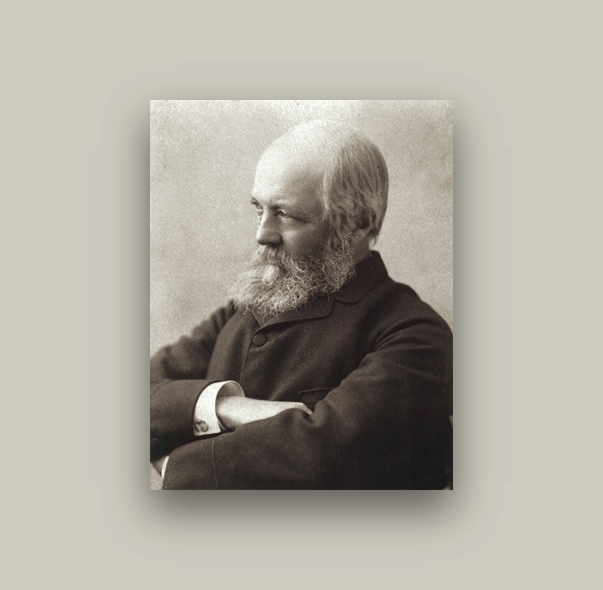Frederick Law Olmsted, Father of American Landscape Architecture

Frederick Law Olmsted Sr. Retrieved from the National Association for Olmsted Parks
Frederick Law Olmsted (1822–1903) is considered the father of American landscape architecture and some of his best-known works remain iconic to this day.
Central Park and Prospect Park in New York, the U.S. Capitol in Washington, D.C., and Biltmore Estate in North Carolina are just a few of the thousands of parks Olmsted designed.
Olmsted believed that it was the purpose of his art (landscape architecture) to affect the emotions. This was especially evident in his park design, where he created passages of scenery in which the visitor would become immersed, experiencing the restorative action of the landscape by what Olmsted termed an “unconscious” process.
To achieve this result, he subordinated all elements of the design to the single purpose of making the landscape experience most profound. Olmsted always sought to look beyond current taste and fashion and to base his designs on fundamental principles of human psychology.
As Olmsted expressed it, the term “scenery” does not apply to any field of vision in which all that is to be seen is clear and well defined in outline. It must contain either “considerable complexity of light and shadow near the eye, or obscurity of detail further away.”
These qualities were essential for the unconscious action of scenery on the psyche. They were also a crucial element of his designs as a training ground for aesthetic sensibility.
The quality of “delicacy,” which involved variety, intricacy, and fine gradation of texture, tint, and tone, was fundamental to Olmsted’s artistic and civilizing purpose. The final test of civilization, he taught, was this delicacy, shown by “the willingness of the people to expend study and labor with reference to delicate distinctions in matters of form and color.”
Throughout his career, Olmsted followed a set of design principles that would ensure his landscape architecture projects would endure for years to come. He truly was a man before his time.
See: 10 Landscape Design Tips from Frederick Law Olmsted


Recent Comments